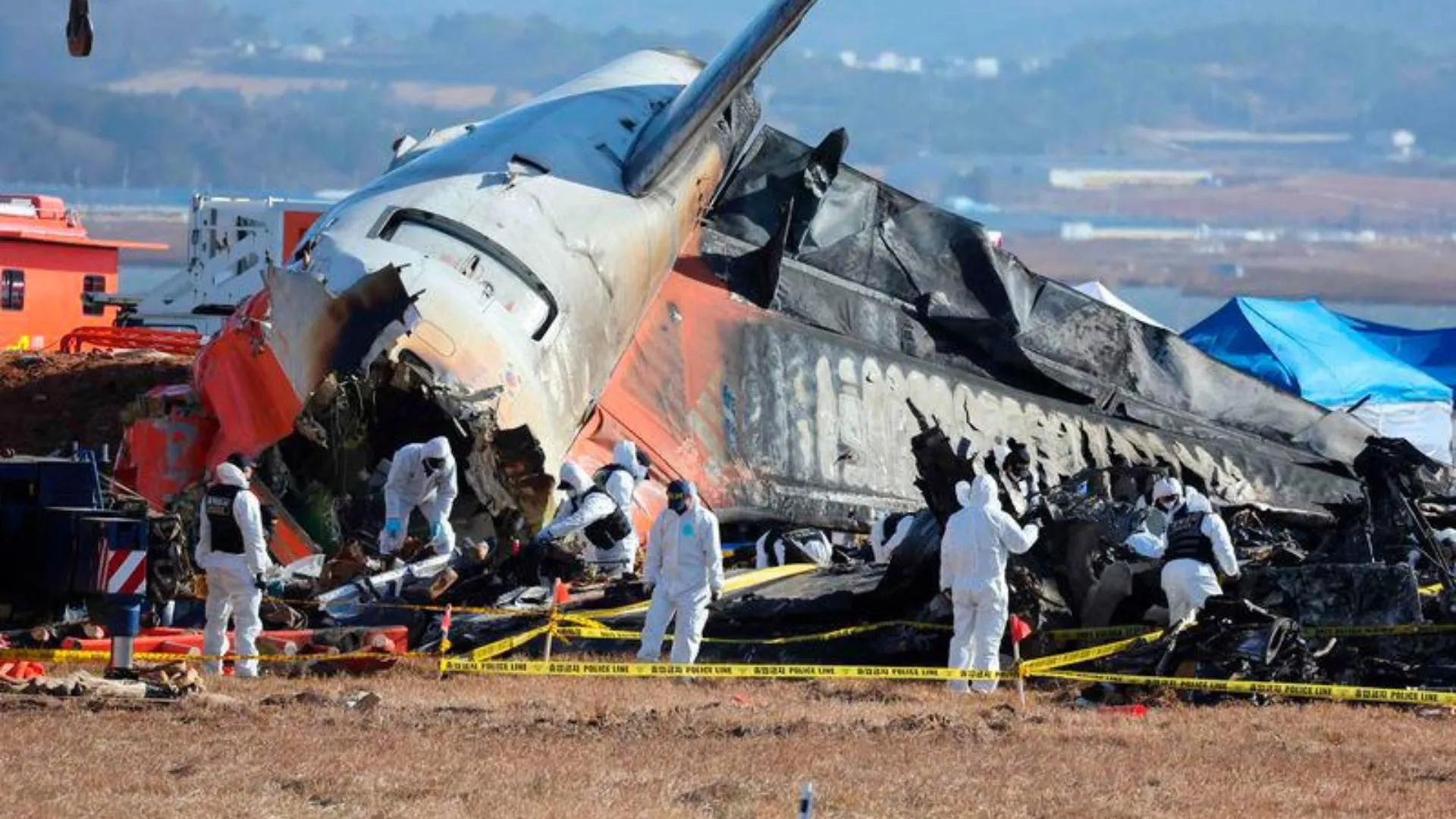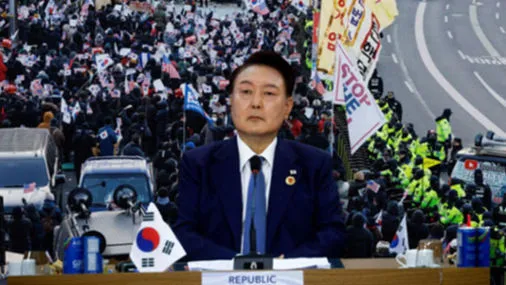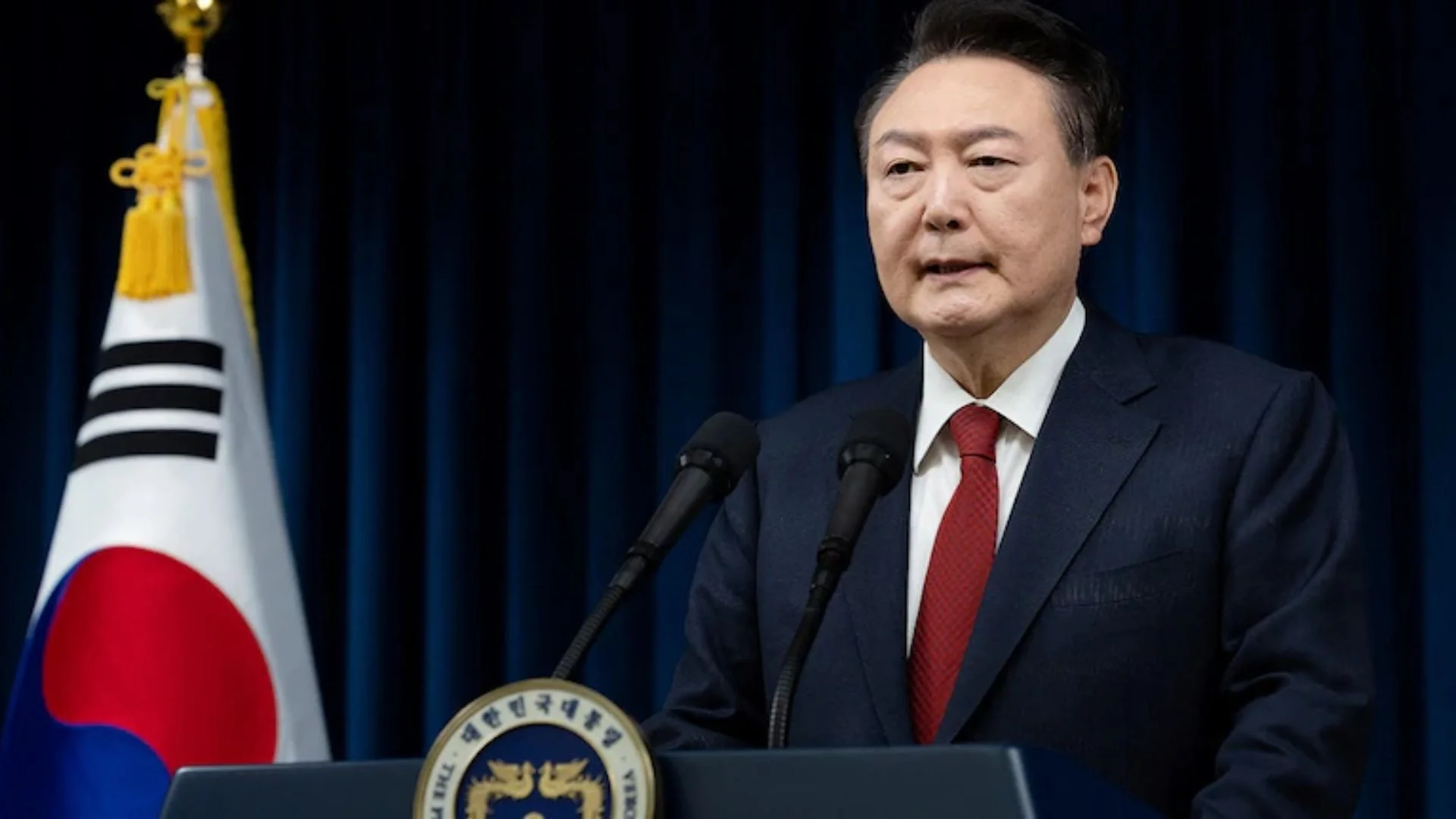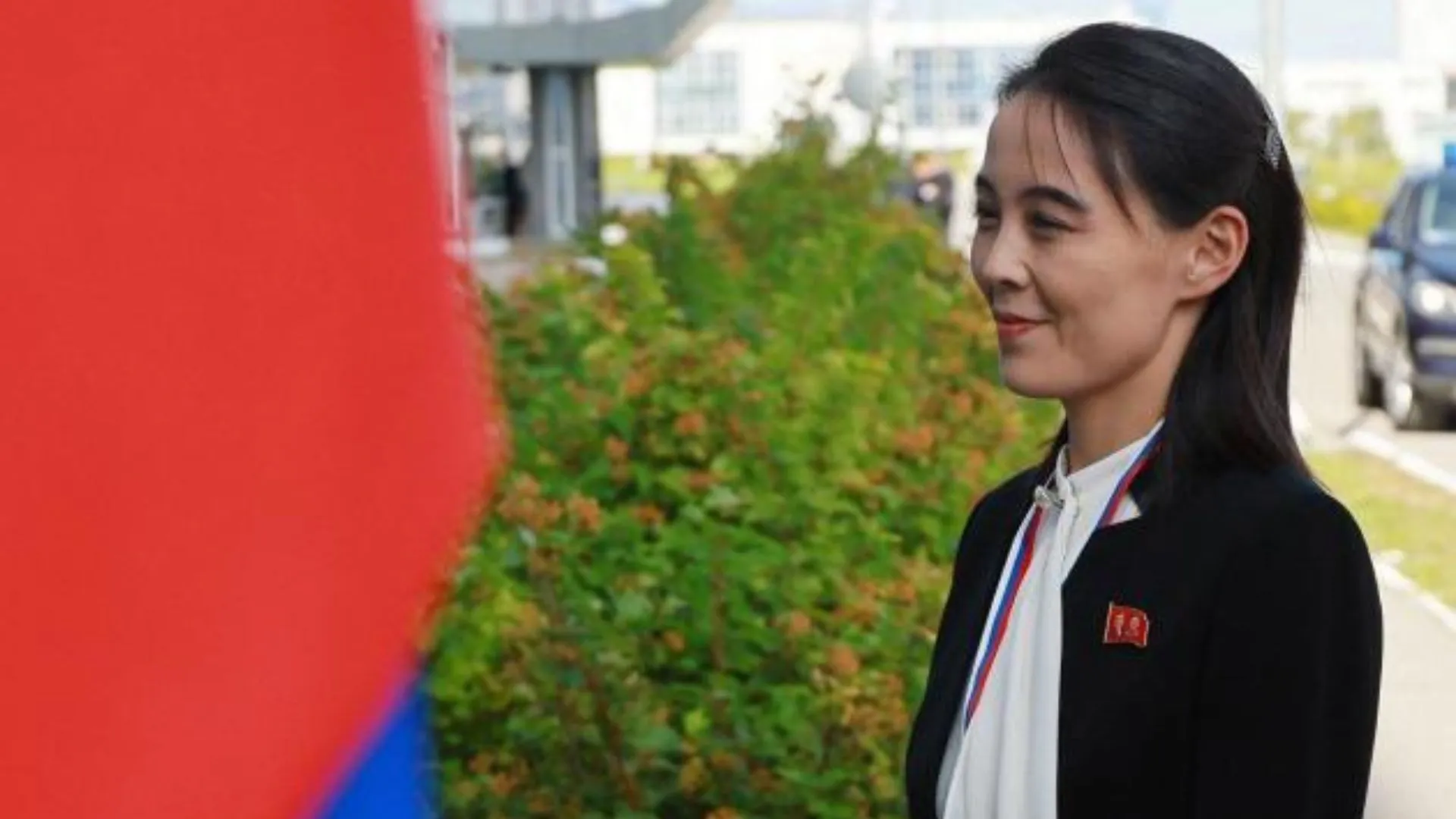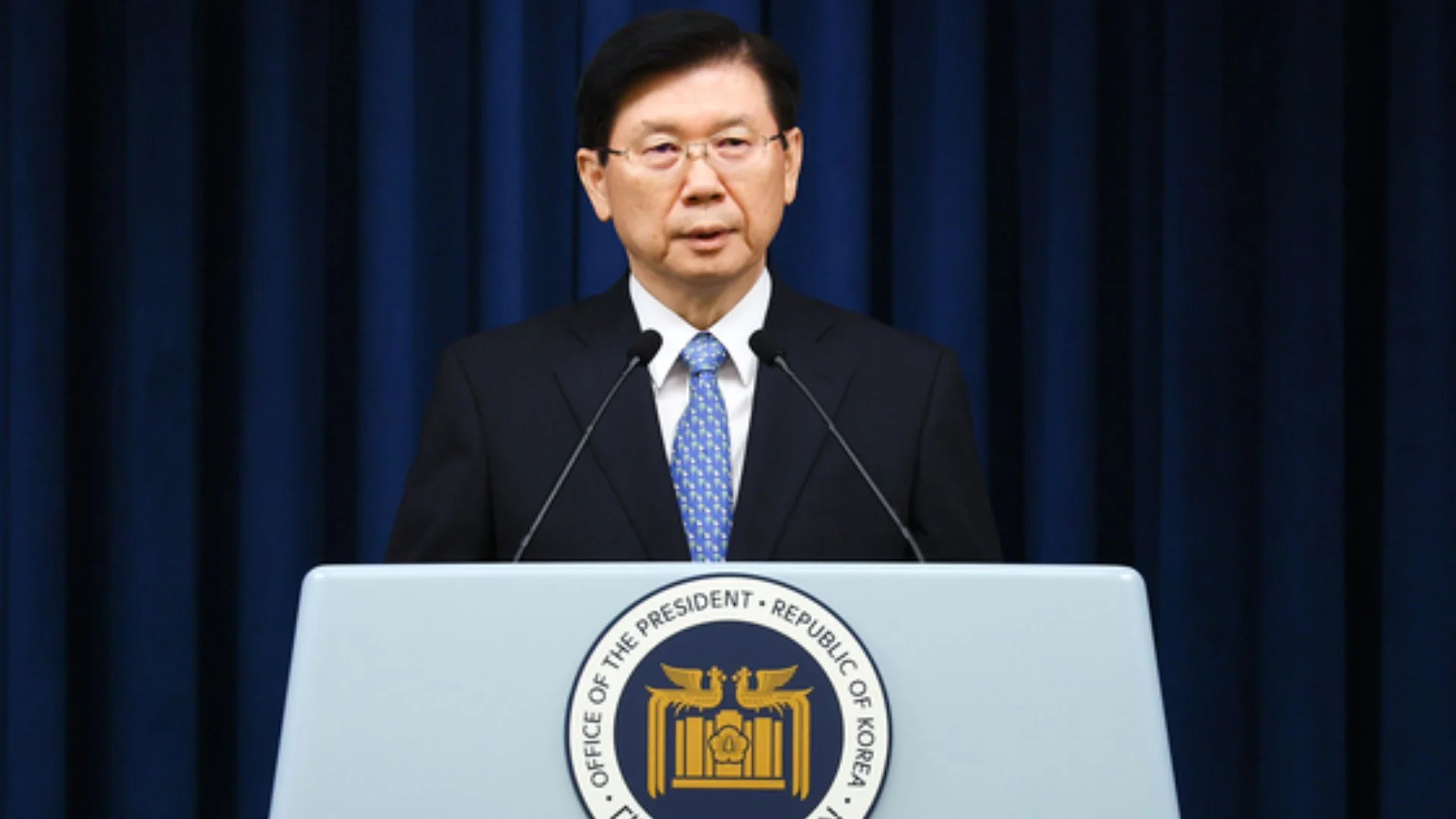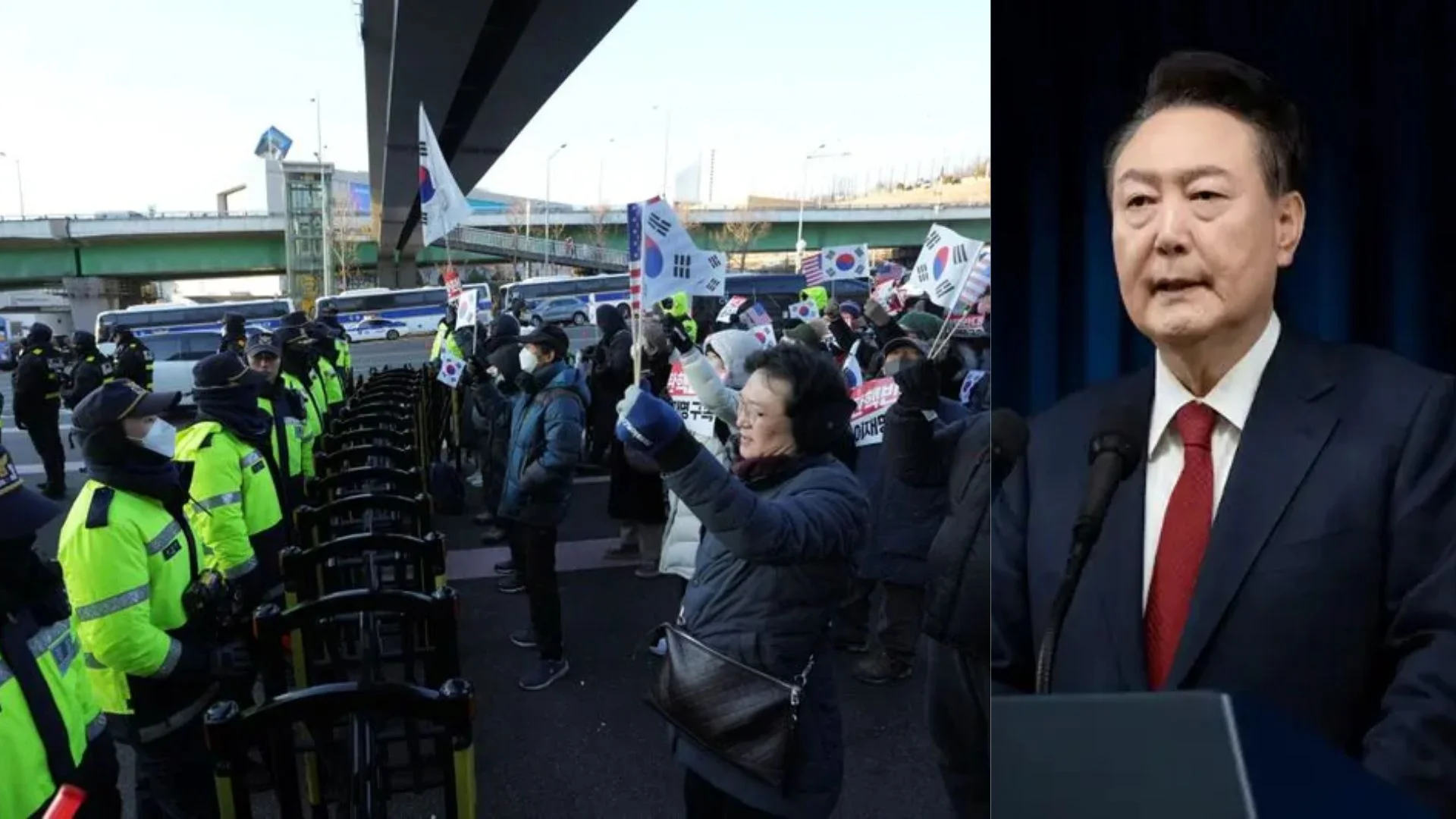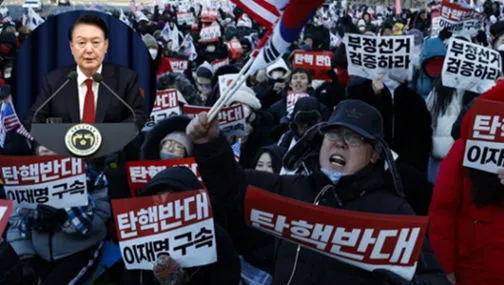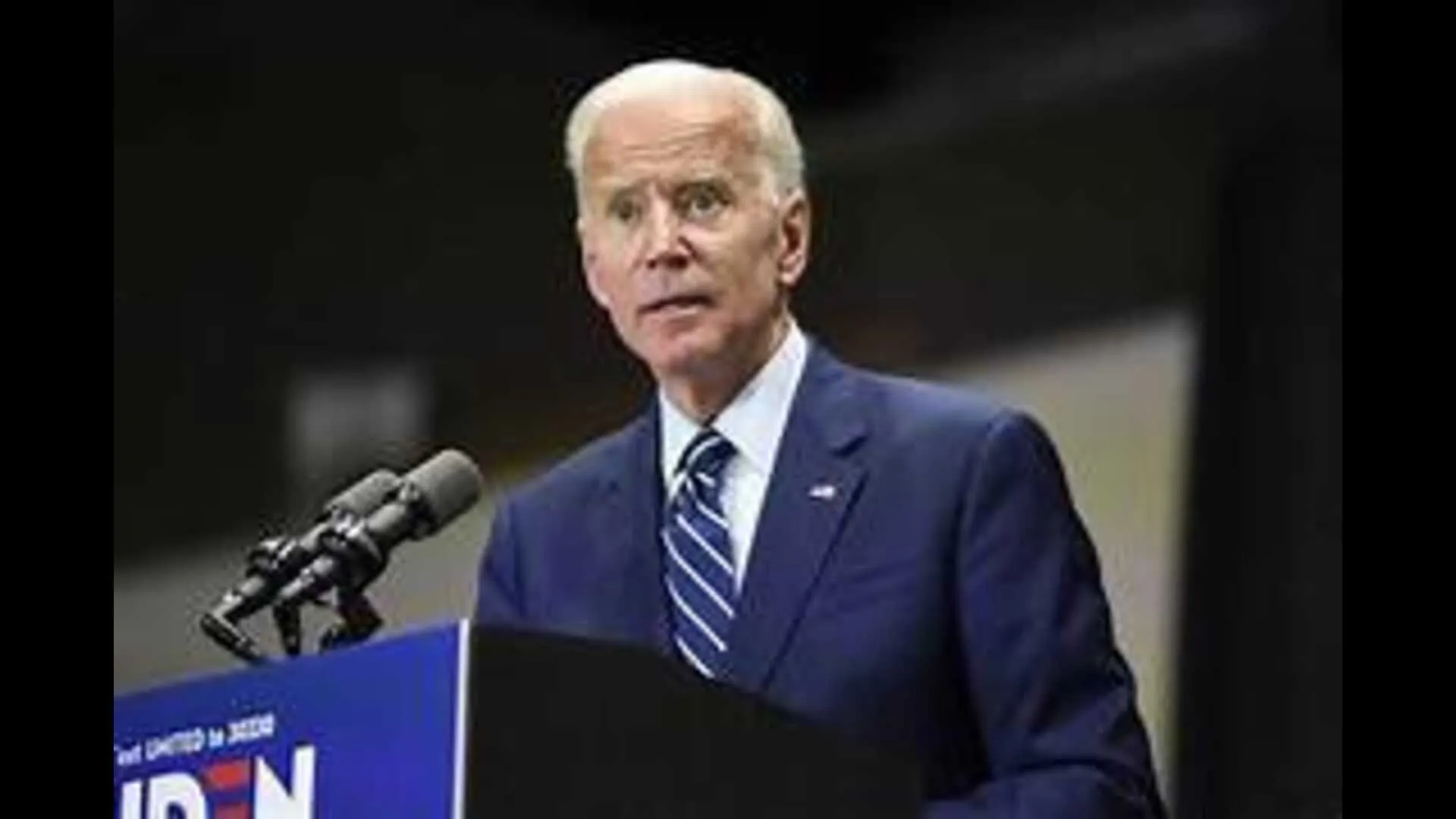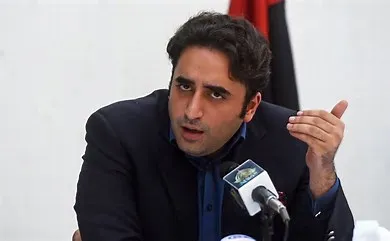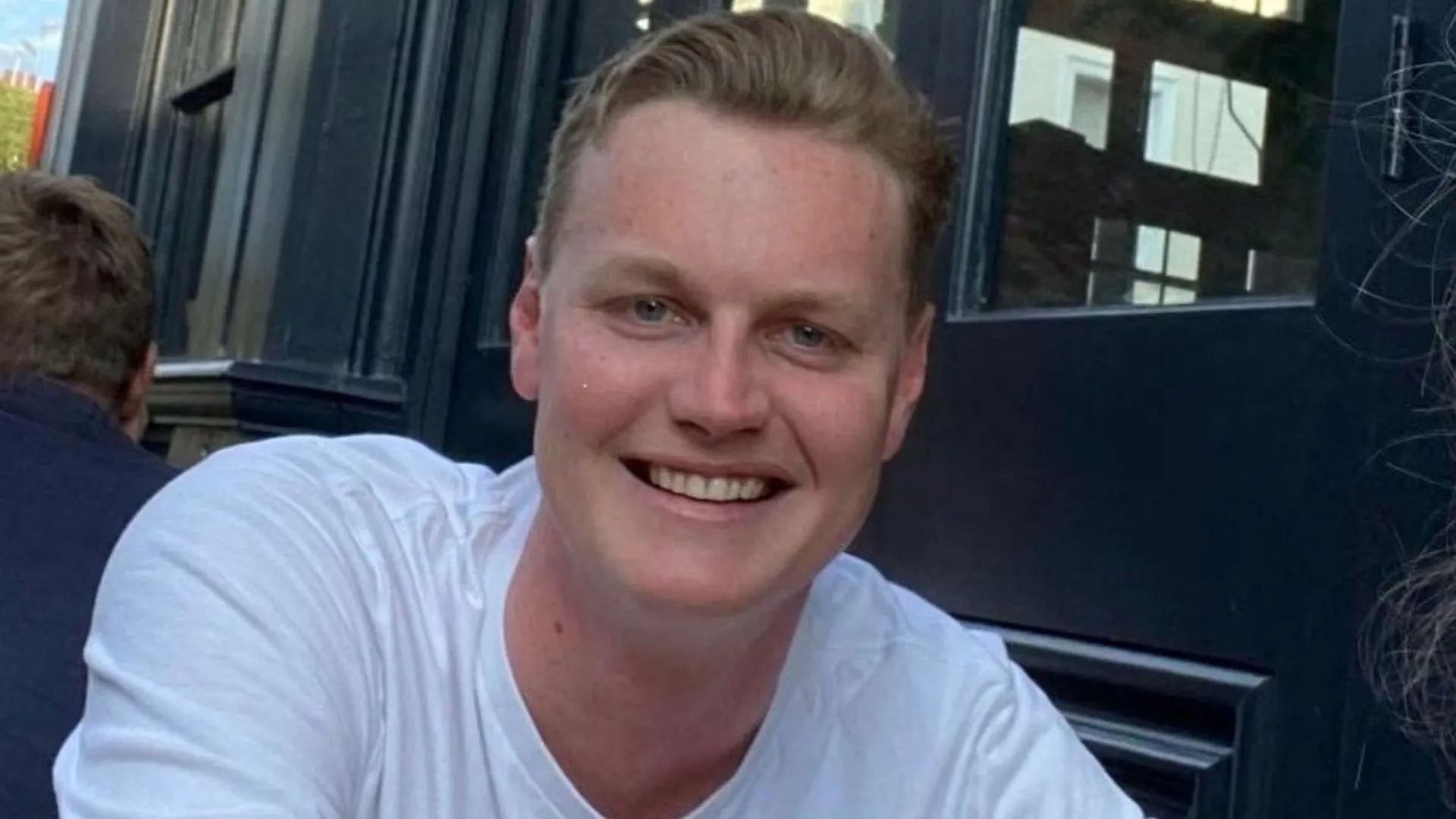South Korean police intensified their investigation into the fatal crash of a Boeing 737-800 that claimed the lives of 179 people by raiding the offices of Jeju Air and the operator of Muan International Airport on Thursday.
The flight, carrying 181 passengers and crew from Thailand to South Korea, issued a mayday call on Sunday before belly-landing and crashing into a barrier, resulting in the deaths of all but two flight attendants.
On Thursday, authorities conducted search and seizure operations at Muan Airport, the site of the crash, a regional aviation office in the southwestern city, and Jeju Air’s headquarters in Seoul. Police also announced that Jeju Air’s CEO, Kim E-bae, has been banned from leaving the country while the investigation continues.
“The police plan to swiftly and rigorously determine the cause and responsibility for this accident in accordance with the law and principles,” a police statement to AFP read.
At Muan Airport, investigators, soldiers, and police in white suits were still combing through the crash site, while orange-robed monks held prayer ceremonies nearby. Inside the airport, mourners left colourful post-it notes on the stairs, one reading, “Honey, I miss you way too much,” and another, “Even if you faced lonely and painful moments in death, may you now soar like a butterfly.” Flowers, food, and tteokguk, a traditional rice cake soup eaten on New Year’s Day in South Korea, were left by grieving relatives.
In a show of solidarity, star chefs from Netflix’s “Culinary Class Wars,” including Ahn Yu-seong, volunteered to prepare meals for the victims’ families. People across the nation also pre-paid for coffee at the airport café, allowing victims’ families, who have been waiting in the lounge since Sunday, to drink for free.
The land ministry reported that more bodies were released to the families on Thursday to begin funeral preparations.
Concrete barrier
Officials initially suggested that a bird strike could have been a possible cause of the crash but later expanded the investigation to include the role of a concrete barrier at the end of the runway.
Dramatic footage showed the plane colliding with the barrier before bursting into flames.
According to Yonhap, the Muan airport warrant was issued on charges of professional negligence resulting in death, citing officials.
“Police are securing evidence related to the legitimacy of the airport’s localizer,” Yonhap reported, referring to the concrete wall at the end of the runway that houses an antenna array.
The authorities are also looking into communication records between the control tower and the pilot just before the crash, Yonhap added.
To ensure safety, airports nationwide are being inspected for similar localizers, the land ministry confirmed in a statement.
Some experts have suggested that the disaster may have been less deadly had the installation not been made of concrete.
Boeing inspections
South Korea has announced plans to inspect all Boeing 737-800 aircraft operated by its carriers, focusing on the landing gear, which appears to have malfunctioned during the crash on Sunday.
South Korea’s acting president, Choi Sang-mok, emphasized Thursday that “immediate action” must be taken if the investigation reveals any issues with the aircraft model.
Authorities had previously stated that 101 aircraft of the same model were in operation by six different airlines.
“As there’s great public concern about the same aircraft model involved in the accident, the transport ministry and relevant agencies must conduct a thorough inspection of operation maintenance, education, and training,” Choi said Thursday.
This crash marks the worst aviation disaster in South Korea’s history.
South Korean authorities have completed the initial extraction of data from the cockpit voice recorder, but the flight data recorder was damaged and will be sent to the United States for analysis, officials confirmed on Wednesday.

